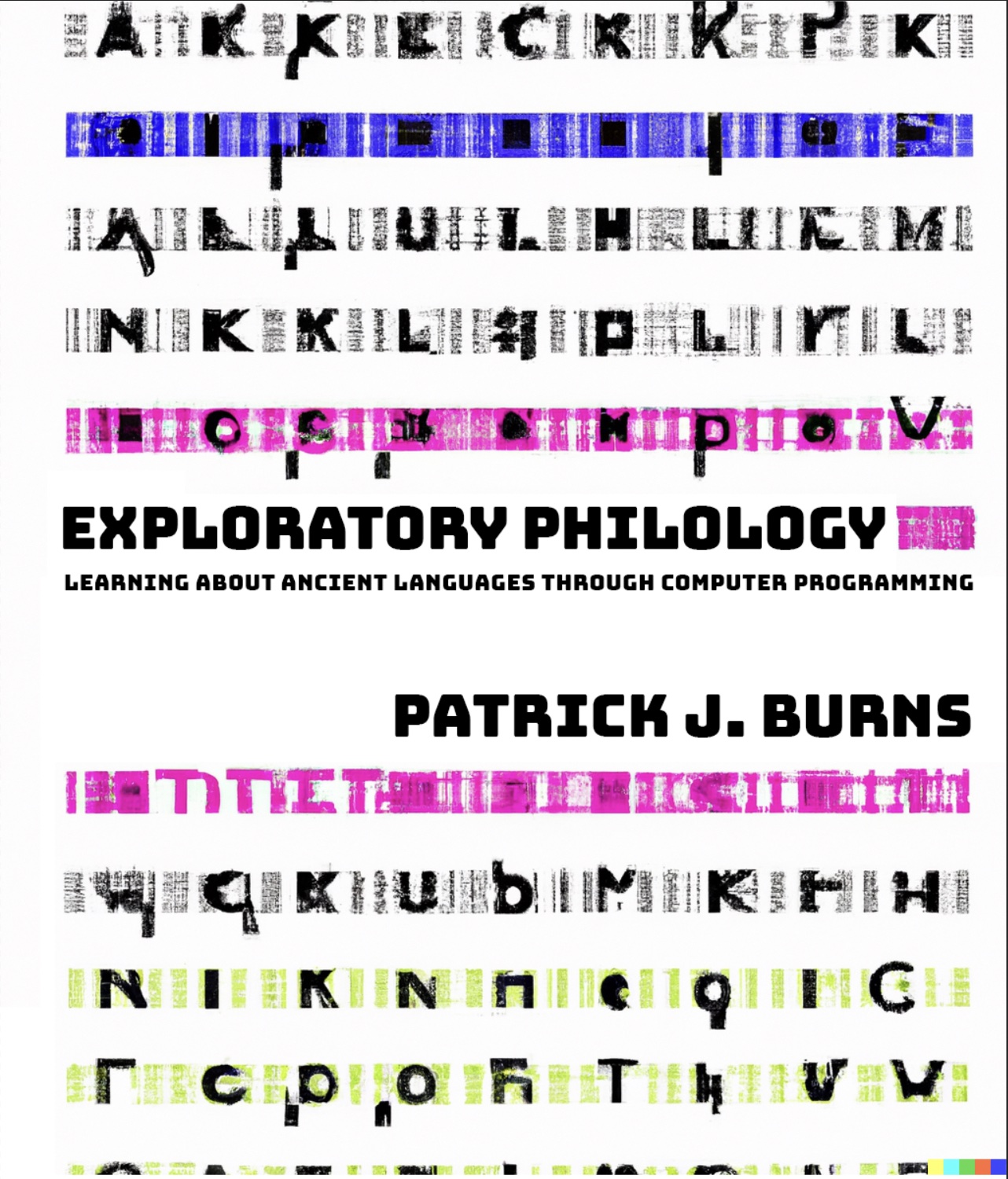Exploratory Philology
Learning About Ancient Languages through Computer Programming
Exploratory Philology

Exploratory Philology: Learning About Ancient Languages through Computer Programming presents a series of experiments in computational approaches to classical Greek and Latin texts. Each chapter follows a consistent structure:
- Devise (introduce the question)
- Plan (pseudocode)
- Code (implementation)
- Explore (further analysis)
- Further Reading
New chapters coming soon.